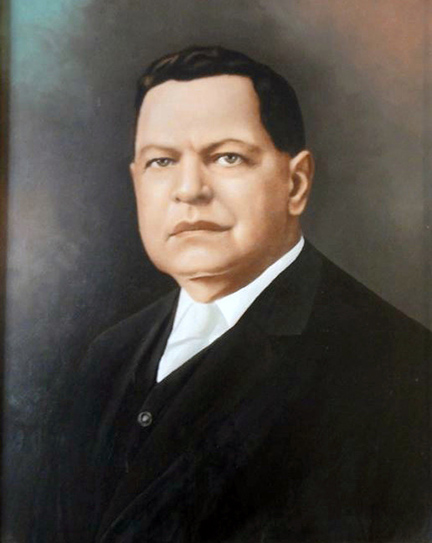By V.S. Santoni
Preston Taylor, an influential African American businessman, philanthropist, and community leader, left an indelible mark on Nashville, Tennessee, and the broader African American community in the late 19th and early 20th centuries. Born into slavery in 1849 in Shreveport, Louisiana, Taylor’s life journey was characterized by resilience, vision, and an unwavering commitment to improving the lives of African Americans.
After gaining his freedom, Taylor moved to Cincinnati, Ohio, where he worked various jobs, including as a janitor and steamboat worker. His entrepreneurial spirit soon led him to establish a successful funeral business, in which his business acumen and dedication to service earned him respect and financial stability, enabling him to invest in his community.
In 1884, Taylor relocated to Nashville, where he quickly became a prominent figure. He recognized the lack of services and opportunities for African Americans, and established the Preston Taylor Funeral Home, which became one of the most successful African American-owned businesses in the region. His funeral home not only provided essential services but also became a symbol of dignity and respect for the Black community during a time of pervasive racial discrimination.
Taylor’s impact extended far beyond his business ventures. In 1890, he co-founded the National Negro Business League, alongside Booker T. Washington, advocating for African American economic empowerment and entrepreneurship. This organization played a crucial role in fostering a sense of solidarity and progress among Black business owners across the nation.
A deeply religious man, Taylor also made significant contributions to the religious and social fabric of Nashville. He was a prominent leader in the Christian church (Disciples of Christ) and was instrumental in founding the Tennessee State Sunday School Convention. His commitment to faith and education led him to establish the Greenwood Cemetery in 1888, providing a dignified resting place for African Americans who were often denied burial in white cemeteries.
Perhaps Taylor’s most enduring legacy is the founding of Greenwood Park, which opened in 1905, as the first park in Nashville specifically for African Americans. The park offered recreational facilities, cultural events and a sense of community pride during an era when segregation severely limited such opportunities for Black residents. Greenwood Park became a cherished gathering place and a symbol of progress and hope.
Today, Taylor is remembered as a pioneer who tirelessly worked to uplift and inspire his community. His life story continues to serve as an inspiring example of how one individual’s dedication and vision can profoundly transform society.
Copyright 2024 TNTRIBUNE, All rights reserved.



